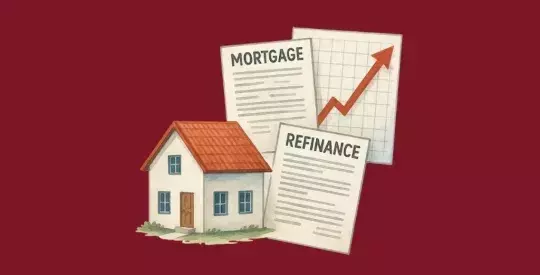
A recent analysis highlights a significant shift in how consumers are building their credit profiles, with a notable increase in individuals independently reporting their rental payment history. This evolving trend is opening new avenues for financial inclusion, particularly for those aspiring to enter the housing market.
Rent Payment Reporting Surges, Paving Way for Homeownership
In a compelling report released this past Wednesday, TransUnion revealed a marked escalation in the proportion of consumers whose rental payments are being communicated to credit reporting bodies. The figure climbed from 11% in 2024 to 13% in 2025. This uptick is anticipated to accelerate following a pivotal July 2025 directive from FHFA Director Bill Pulte, mandating that Fannie Mae and Freddie Mac accept VantageScore 4.0 credit scores for mortgage underwriting. Crucially, this directive also sanctions the consideration of rental payment histories in mortgage assessments, a move poised to significantly broaden access to homeownership for a greater number of first-time buyers.
Maitri Johnson, Senior Vice President and head of TransUnion's tenant and employment screening division, expressed optimism regarding these developments. Johnson noted that the vast majority of renters consistently make timely payments and should be able to leverage this financial discipline for homeownership and other economic prospects. The study, however, also observed a slight decrease in property manager participation in rent reporting, falling from 48% in 2024 to 44% in 2025—the first such decline since 2022. This suggests that the rise in reported payments is largely driven by individuals proactively submitting their rent data via third-party services. Johnson emphasized that rent payment reporting is a proven method for enhancing credit scores and fostering financial inclusion, and she hopes the new FHFA policy will further encourage consumer participation.
Moreover, the analysis indicates that rent payment reporting appeals to conscientious renters, with 57% preferring property managers who report payments and 80% showing a higher propensity for on-time payments. State-level initiatives have also propelled adoption, with California now mandating reporting and Colorado requiring landlords to offer it annually. Interestingly, participation across most generational cohorts increased, except for Gen Z, which saw a drop from 26% in 2024 to 18% in 2025. Despite this dip, Gen Z remains the most active demographic in this area due to their typically shorter credit histories. Johnson pointed out that the decreased engagement from Gen Z was unexpected, given their nascent credit profiles. She anticipates that with rent payments now counting towards mortgage qualifications, many Gen Z consumers may find themselves in a better position to achieve homeownership at an earlier stage in life.
This shift towards greater recognition of rent payment history in credit assessments marks a significant step forward. It empowers responsible renters, particularly younger generations, to build stronger credit profiles and ultimately facilitates broader access to homeownership. This policy change could redefine traditional credit evaluations, making the dream of owning a home more attainable for a diverse range of individuals.
